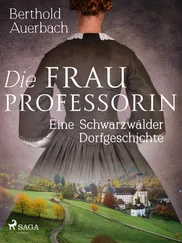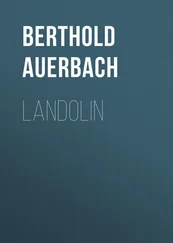Berthold Auerbach - On the Heights - A Novel
Здесь есть возможность читать онлайн «Berthold Auerbach - On the Heights - A Novel» — ознакомительный отрывок электронной книги совершенно бесплатно, а после прочтения отрывка купить полную версию. В некоторых случаях можно слушать аудио, скачать через торрент в формате fb2 и присутствует краткое содержание. ISBN: , Жанр: foreign_antique, foreign_prose, на английском языке. Описание произведения, (предисловие) а так же отзывы посетителей доступны на портале библиотеки ЛибКат.
- Название:On the Heights: A Novel
- Автор:
- Жанр:
- Год:неизвестен
- ISBN:http://www.gutenberg.org/ebooks/33294
- Рейтинг книги:4 / 5. Голосов: 1
-
Избранное:Добавить в избранное
- Отзывы:
-
Ваша оценка:
- 80
- 1
- 2
- 3
- 4
- 5
On the Heights: A Novel: краткое содержание, описание и аннотация
Предлагаем к чтению аннотацию, описание, краткое содержание или предисловие (зависит от того, что написал сам автор книги «On the Heights: A Novel»). Если вы не нашли необходимую информацию о книге — напишите в комментариях, мы постараемся отыскать её.
On the Heights: A Novel — читать онлайн ознакомительный отрывок
Ниже представлен текст книги, разбитый по страницам. Система сохранения места последней прочитанной страницы, позволяет с удобством читать онлайн бесплатно книгу «On the Heights: A Novel», без необходимости каждый раз заново искать на чём Вы остановились. Поставьте закладку, и сможете в любой момент перейти на страницу, на которой закончили чтение.
Интервал:
Закладка:
"Well, Jangerl looked just like you to the very hair. No, not the hair, for his was red and his face wasn't as fine as yours, either; but taking it altogether, just as the devil takes the farmers" – Hansei was delighted with his joke, and the lackey joined in his laughter-"one might say that you look like each other. But you're sure you're not angry at what I've said?"
"Not at all," said Baum, looking at his watch. The clock in the church steeple was just striking five, and he said: "There's a difference of exactly one hour between your clock and that at the capital. Did this house belong to your parents?"
"No, I got it with my wife. That's to say, we still owe a mortgage of two hundred florins on it, but the farmer who holds it, doesn't press us."
"Your wife can buy you another house, and you ought to consider yourself lucky to have so good-looking a wife."
"Yes, and that's what makes me sorry to give her up," complained Hansei. "However, there are only three hundred and sixty-five days in a year-but that's a good many, after all."
"And as many nights in the bargain," said Baum, laughing. Poor Hansei shuddered.
"Yes, indeed!" said he. He felt that politeness required an answer on his part.
In the mean while, Walpurga had asked her mother and Stasi to leave her alone with the child. She was kneeling beside the cradle and wetted the pillow with her tears. She kissed the child, the coverlet, and cradle, and then, getting up, said: "Farewell! A thousand times, farewell!" She had dried her tears, and was about to leave the room, when the door opened from without and her mother entered.
"I'll help you," said she. "You'll be either twice as happy, or twice as miserable, when you return, and will make us just as happy or as miserable as you are."
Then she took Walpurga's left hand in hers, and, in a commanding voice, said: "Put your right hand on your child's head!"
"What's that for, mother?"
"Do as I bid you. Swear by your child's head and by the hand I hold in mine, that you'll remain good and pure, no matter what temptations may assail you. Remember you're a wife, a mother, a daughter! Do you swear this with all your heart?"
"I do, mother, so help me God! But there's no need of such an oath."
"Very well," said the mother. "Now walk around the cradle three times with your face turned from it. I'll lead you; don't stumble. Now you've taken the child's homesickness from it, and I'll take good care of it. Take my word for that."
She then led Walpurga into the room and, handing her the great loaf of bread and the knife, said:
"Cut a piece for yourself, before you go. May God bless it for your sake, and when you've reached your journey's end, let the bread that you've brought from home be the first morsel you eat. That'll kill the feeling of strangeness; and now, farewell."
They remained there in silence, holding each other by the hand.
Walpurga found it wondrous strange that Hansei was walking about in the garden with the lackey and forgetting her. Just then, he went up the ladder to get him some cherries, and was smoking incessantly; after that, he took him into the stable, where the cow had been placed.
The two physicians had returned, and Hansei had to be called into the room, for it was here, and not out of doors in the presence of the crowd, that the wife wished to take leave of her husband. Doctor Sixtus put a roll of crown thalers in Hansei's pocket. After that, Hansei constantly kept his hand there and was loth to remove it.
"Give me your hand, Hansei," said Walpurga.
He loosened his grasp of the money and gave her his hand.
"Farewell, dear Hansei, and be a good man. I'll remain a good wife… And now, God keep you all of you."
She kissed her mother and Stasi, and then, without once looking back, she hurried through the garden and seated herself in the carriage. The cow in the stable bellowed and groaned, but the sounds were drowned by the postilion's fanfare.
During all this, old Zenza had been leaning against the garden gate; at times passing her hand over her face and rubbing her bright and sparkling eyes. And now, when the lackey passed her she stared at him so, that he asked, in a rough and yet not unkind voice:
"Do you want anything, mother?"
"Yes; I'm old, and a mother in the bargain. Hi-hi-hi!" said she, laughing, and the crowd hinted to the lackey that her mind often wandered.
"Is there anything you want?" asked the lackey again.
"Of course there is, if you'll give it to me."
With trembling hand, the lackey drew the large purse from his pocket, and took out a piece of gold. But no, that might betray him. After fumbling with the money a long while, he at last gave the gold piece to the old woman, and said:
"This is from the king."
He mounted the box and never looked back again. The coach started off.
People came up to Zenza and asked her to show them what she had received, but her hand was closed as with a convulsive grasp. Without answering, she went away, supporting herself upon her staff.
She walked on, constantly looking at the ruts that the carriage wheels had made in the road, and those who passed her could hear her muttering unintelligibly. Her staff was in her right hand, and with her left she still clutched the gold piece.
CHAPTER VIII
The carriage moved along the road by the lake, and, at last, turning the corner at the stone-pile, was out of sight. The hay on which Walpurga had rested a fortnight before was still lying in the same place.
They passed a handsome girl, dressed in once genteel, but now shabby, finery. She was of a powerful frame, tawny complexion, and her blue-black hair was braided in thick plaits. She stared at Walpurga, but did not greet her until after she had passed.
"That's the daughter of the old woman you gave a present to," said Walpurga, addressing the lackey. "She goes by the name of Black Esther. If the mother doesn't bury the money out of sight, she'll surely take it from her."
Although Baum turned toward Walpurga, he was not looking at her, but at the girl, who was no other than his sister. A little while ago, he had denied his mother, while bestowing an alms upon her. And now he sat up beside the postilion, his arms folded as if to brace himself, for he felt as if his heart would break. His whole life passed before him, and, now and then, he planted himself more firmly in his seat, lest he should fall. And now the carriage passed by a farmyard where, twenty years ago, he had, by his mother's order, stolen a goose. He was a slim lad then and had found it easy to slip in, on all fours, through the gap in the hedge, which had closed up in the mean while.
Thomas, his twin brother, had joined the poachers. But Baum, who was not apt at their work, was glad when they took him for a soldier. One day while he was on duty at the palace an old valet de chambre brought a letter from Baroness Steigeneck, who was then at the height of her power. The valet was kept waiting a long while, during which he chatted with Baum, to whom he took a great liking. He invited Baum to visit the Steigeneck palace, where they drank together in the servants' room and were exceedingly jolly.
"Why is your hair so red?" said the valet de chambre .
"Why? Because it grew so."
"But that can be remedied."
"Indeed! How so?"
The old man gave Baum the requisite directions.
"You must also change your name. Rauhensteiner is too hard for their lordships. It is difficult to pronounce, and particularly for those who have false teeth. You must take some such name as Beck, or Schultz, or Hecht, or Baum. For, mind you, a dog has no name except the one its master sees fit to call it by."
"'Baum' would suit me very well."
"Well then, let it be Baum." On his way home that night, he kept continually saying to himself, "Baum, Baum-that's a short and easy name and no one will know me." The old man had made him swear that he would have nothing more to do with his family. His recent visit to his native village had reminded him of his pledge, and, although he attached but little importance to an oath, he found it convenient and, as he thought, praiseworthy to keep this one.
Читать дальшеИнтервал:
Закладка:
Похожие книги на «On the Heights: A Novel»
Представляем Вашему вниманию похожие книги на «On the Heights: A Novel» списком для выбора. Мы отобрали схожую по названию и смыслу литературу в надежде предоставить читателям больше вариантов отыскать новые, интересные, ещё непрочитанные произведения.
Обсуждение, отзывы о книге «On the Heights: A Novel» и просто собственные мнения читателей. Оставьте ваши комментарии, напишите, что Вы думаете о произведении, его смысле или главных героях. Укажите что конкретно понравилось, а что нет, и почему Вы так считаете.












